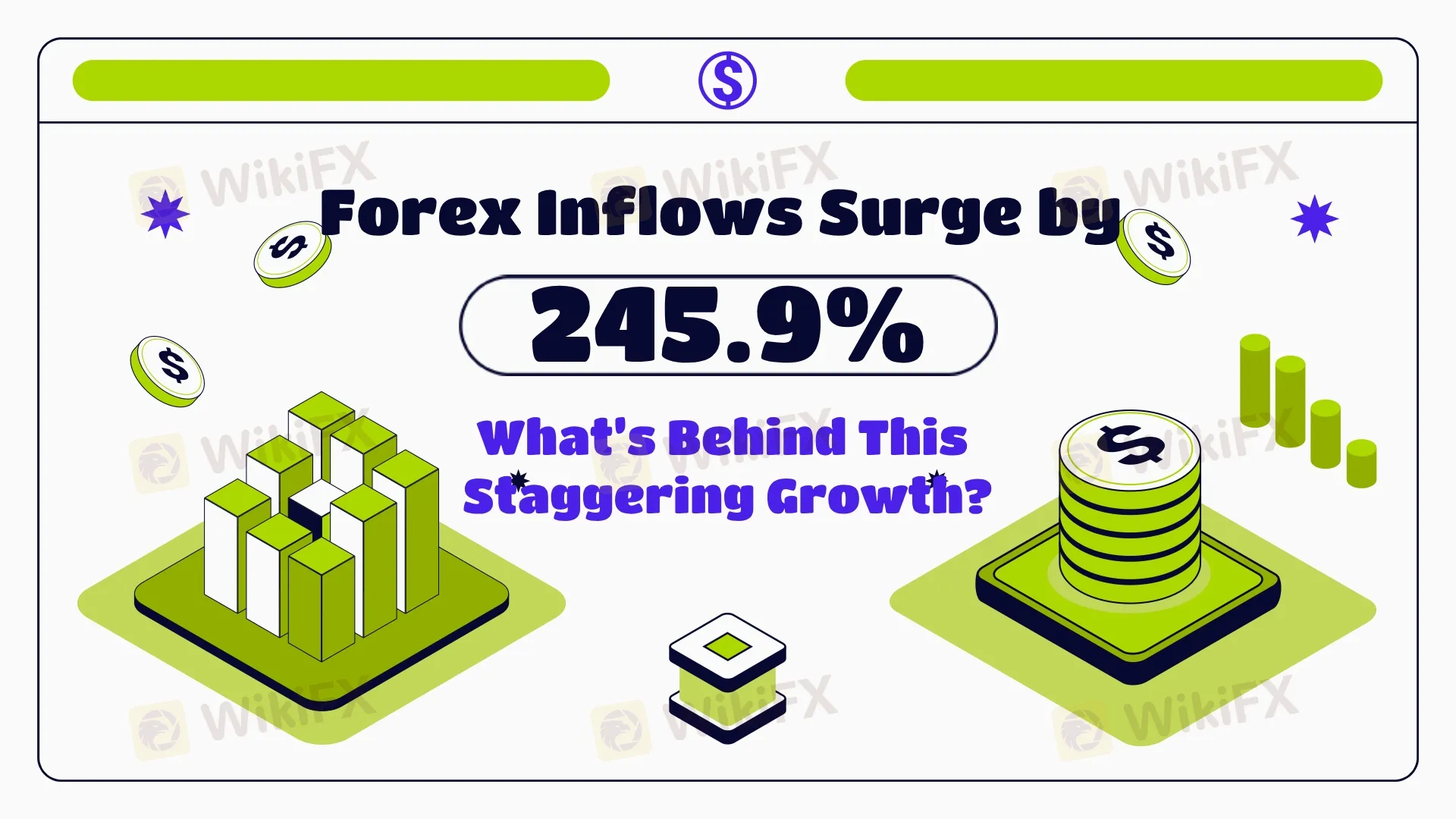简体中文
繁體中文
English
Pусский
日本語
ภาษาไทย
Tiếng Việt
Bahasa Indonesia
Español
हिन्दी
Filippiiniläinen
Français
Deutsch
Português
Türkçe
한국어
العربية
Forex Inflows Surge by 245.9%, What’s Behind This Staggering Growth?
Abstract:As of November 2024, Nigeria's net foreign exchange inflows have surged to $5.95 billion over the past year, marking an impressive increase of 245.9%, with a significant rise in foreign currency flowing into the country's economy.

According to the Central Bank of Nigeria (CBN) economic report, the country's foreign exchange inflows have notably increased over the past year. In November 2023, the foreign exchange inflows were $1.7 billion, whereas this figure surged to $5.95 billion in November 2024, reflecting strong momentum in foreign exchange inflows.
However, on a monthly basis, the net foreign exchange inflows in November 2024 slightly decreased compared to October due to reduced foreign exchange inflows through banking channels. In October 2024, Nigeria's net foreign exchange inflows were $4.86 billion, whereas in November, it rose to $5.95 billion. Meanwhile, total foreign exchange inflows decreased from $9.15 billion in October to $8.4 billion in November. Notably, foreign exchange outflows also saw a significant decline, dropping from $4.29 billion to $2.45 billion.
During this period, the Naira depreciated against the US dollar. Additionally, the average foreign exchange turnover on the Nigerian Financial Foreign Exchange Market (NFEM) increased by 24.78% from $241.65 million in October 2024 to $301.52 million in November.
Net Foreign Exchange Flow Explained
Net foreign exchange flow refers to the difference between the total amount of foreign exchange flowing into a country or economy and the total amount flowing out within a given period. It reflects the movement of capital in the foreign exchange market of that economy. Specifically, when net foreign exchange flow is positive, it means the foreign exchange inflows into the economy exceed the outflows, indicating that the country's foreign exchange reserves are being replenished and there is a healthy inflow of capital.
Disclaimer:
The views in this article only represent the author's personal views, and do not constitute investment advice on this platform. This platform does not guarantee the accuracy, completeness and timeliness of the information in the article, and will not be liable for any loss caused by the use of or reliance on the information in the article.
Read more

OctaFX Flagged by Malaysian Authorities
OctaFX has been officially listed on warning lists by both Bank Negara Malaysia (BNM) and the Securities Commission Malaysia (SC). These alerts raise serious concerns about the broker’s status and whether it is legally allowed to operate in Malaysia.

TradingPRO: A Closer Look at Its Licences
In an industry where safety and transparency are essential, the regulatory status of online brokers has never been more important. For traders seeking to protect their capital, ensuring that a platform operates under recognised and stringent oversight can make all the difference. Keep reading to learn more about TradingPRO and its licenses.

Oil Price Breakout Incoming? Investors Should Stay Alert
Oil prices are hovering around a critical level, with potential yet to be fully unleashed. Investors must prepare for sudden changes.

New SEBI Regulations on Intraday Trading
The Securities and Exchange Board of India (SEBI) has implemented revised regulations on Intraday trading, with effect from November 20, 2024. These regulations are meant to lessen risks and prevent speculative trading practices.
WikiFX Broker
Latest News
How much money will you earn by investing in Vantage Broker?
IronFX vs Exness Review 2025: Comprehensive Broker Comparison
Fraudsters Are Targeting Interactive Brokers' Users with Lookalike Emails
Everything you need to know about ADSS
SkyLine Guide 2025 Malaysia: 100 Esteemed Judges Successfully Assembled
Vantage Markets Review 2025: Trusted Forex and CFD Trading Since 2009
Top Tips to Choose the Best Forex Broker in 2025
SEBI Notifies New F&O Rules for Investors - New Derivative Trading Limits & More Amendments
Interactive Brokers: Global Office Visits and Licensing Details
U.S. Jobs Data Released: A Potential Boost for Gold Prices
Currency Calculator


